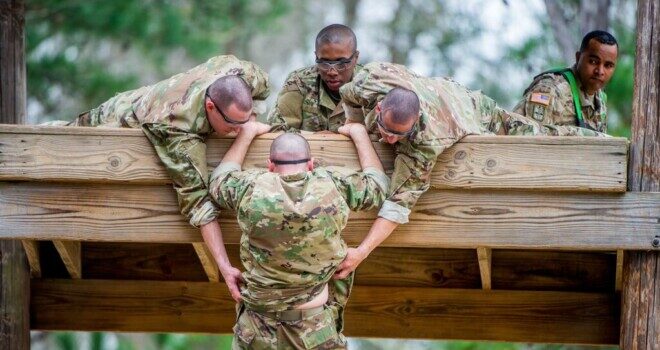Why is friendship so hard in our culture? This is a question I have pondered for years. A friend of mine brought the topic up during breakfast while we sat outside on a sunny morning recently. We both experience difficulties in friendships and have struggled to maintain deep relationships with fellow Catholics. While the dynamics of relationships are as varied as the people within them, there seem to be cultural barriers to lasting, deep friendships in Western culture, which are infecting the Church.
Two of the greatest barriers—especially in the United States—are individualism and woundedness. We live in a culture that is constantly telling us to do things our own way. The adage that we are strong enough to “do it on our own” permeates the culture. We don’t need anyone’s help. To seek help is to show weakness. This is the antithesis of the Christian call to walk together as the Mystical Body of Christ. Weakness is strength according to St. Paul.
I lived this lie for years until I collapsed in exhaustion because I couldn’t keep up the façade any longer. When I was serving in the U.S. Navy, I believed that I couldn’t show weakness. I was a woman in a man’s world. I needed to be as tough as the men. I didn’t need help from anyone because I could do it myself. This way of life was completely unsustainable.
After experiencing the horrors of 9/11 and serving the 400 grieving family members of the 184 people killed in the Pentagon attack at 20 years of age, I struggled to carry such a heavy weight. The military is not a place where people are supposed to show weakness—but this dynamic inevitably turns out wounded people who cannot function. Human beings are not called to bear the unspeakable evils of terrorism and war alone.
The Lord showed me that I needed to learn how to ask for help and how to rely on friends. I was diagnosed with delayed-onset Post-Traumatic Stress Disorder 3 years after 9/11. The nightmares, night terrors, flashbacks, anxiety, and depression drained my body and mind. During this time, I met a friend who taught me the true meaning of friendship. She was a non-denominational Christian British civilian I met through mutual friends.
When the weight of my 9/11 experiences started to crush me, there came a moment when I needed a month of inpatient treatment at a private hospital three hours from the town I was living in. She took over my affairs and drove the three hours one way to see me once or twice a week. She even did the drive in one day to come have dinner with me one evening. Her dedication and sacrifice were something I never experienced before. By her willingness to enter my suffering, she taught me how to be a better friend and how to receive love. I could stop pretending that I had it all together. None of us do.
I haven’t spoken to her in a few years. We were able to keep in touch for over a decade after I left England, but life kept moving forward for both of us. The memory of her charity, kindness, and dedication will stay with me forever. She truly understood what Christian friendship should look like. Christian friendship is not meant to be primarily a matter of utility or pleasure. It is a shouldering of the cross together. It is to walk together in joys and sorrows on the path to heaven.
Rob Marco in his book Wisdom and Folly: Essays on Faith, Life, and Everything in Between shares his struggles with finding deep friendships:
I’ve made and lost a lot of friends over the years. Very, very few people will stand by you when you are being crucified. If that’s the case, these are the “friendships of utility” in which a quid pro quo unspoken understanding is that we have permission to peel off when we are not being fed by the other, or finding a lack of common bond as things change over the years.
Relationships of utility or pleasure are superficial by nature. They lack sacrifice, vulnerability, intimacy, and true charity. They are egotistical because they seek their own gratification rather than the needs of others.
Our culture is lonely in part because we are egotistical. We make everything about ourselves, rather than seeing the suffering needs of others. Very often even relationships that seem to have some level of depth to them fall apart on one side when crucifixion comes for the other person. This also happens when a friend tries to be honest about the sins or failures of the other person. The minute they are no longer affirmed or enabled in all their life choices they leave.
Individualism feeds the lie of our culture that relationships are about what we get out of them, meaning that they should affirm us in everything. This idea is destroying us. People have become emotionally fragile and wounded. Trying to control everything while desiring to be affirmed in everything has turned us into nervous wrecks. Deep down we have placed a false idol of the opinions of others in God’s place within our hearts. If we are strong in our Christian identity, then we should be able to handle the complexities, sacrifices, and the truth required in friendships. We should cherish the friend who calls us back to the path to holiness and who will not put up with our sinful tendencies and selfishness.
Christian friendship is meant to be a sharing of lives, hearts, ideas, experiences, Christian virtue, prayer, crosses, and holiness. It cannot be grounded in egotism, or it will be doomed to fail. To truly be friends with others, we need to be willing to share joys and sorrows. “Fair weather” friends need not apply because this concept is not Christian friendship.
St. Maximilian Kolbe sees friendship as a gift from God in struggle: “God sends us friends to be our firm support in the whirlpool of struggle. In the company of friends, we will find strength to attain our sublime ideal.” St. Francis de Sales cautions the Christian to: “Love your neighbor, Dear reader, with a great, charitable love, but befriend only those with whom you can be mutually supportive in virtue. The higher the virtues that you put into these relationships, the more perfect will your friendship be.” The Christian should understand that friendship is a bond to help us grow in holiness.
Samwise Gamgee in The Lord of the Rings is a character who depicts true friendship, as he says: “I made a promise, Mr. Frodo. A promise. ‘Don’t you leave him, Samwise Gamgee.’ And I don’t mean to. I don’t mean to.” Sam committed to going all the way to Mordor with Frodo. He could not carry the ring, but he could help his friend carry the burden by accompanying him. He committed fully to the high demands of friendship. Later, he talks about maintaining hope in dark days:
I know. It’s all wrong. By rights, we shouldn’t even be here. But we are. It’s like in the great stories, Mr. Frodo. The ones that really mattered. Full of darkness and danger, they were. And sometimes you didn’t want to know the end. Because how could the end be happy? How could the world go back to the way it was when so much bad had happened? But in the end, it’s only a passing thing, this shadow. Even darkness must pass. A new day will come. And when the sun shines, it’ll shine out the clearer.
Real friendships maintain hope in dark days. When cancer, miscarriage, rare illnesses, death, job loss, violence, or other afflictions happen to friends, fortitude and charity are guided on by the hope that resurrection will come. Too many people flee the cross, which is why they are incapable of deep friendship. They don’t stick around to see the resurrection. They are lonely, but they don’t want to pay the cost necessary to form deep bonds.
My British friend understood friendship grounded in Christ. She came to see me in the hospital when I was suffering. A month later we were hiking in the mountains of Wales in one of the most beautiful places I have ever been. She walked in the darkness with me until a new dawn broke. We walked together in joys and sorrows. Christian friendship walks the way of the cross and the resurrection.
Our Lord at the Last Supper tells us: “This is how all will know that you are my disciples, if you have love for one another” (John 13:35). We should look different from the culture, but we don’t. Now is the time to start living the charity we are called to. Superficial relationships can never satisfy. Reducing others to our own selfish egos is sinful. We need to look to characters like Sam Wise Gamgee or friends from our own lives who lived friendship well and seek to be more like them. Ultimately, we need to conform ourselves to Christ and seek each day to go all the way to the end with the friends He gives us on the path to heaven.
Photo by Patrick Albright on ArmyTimes.com










